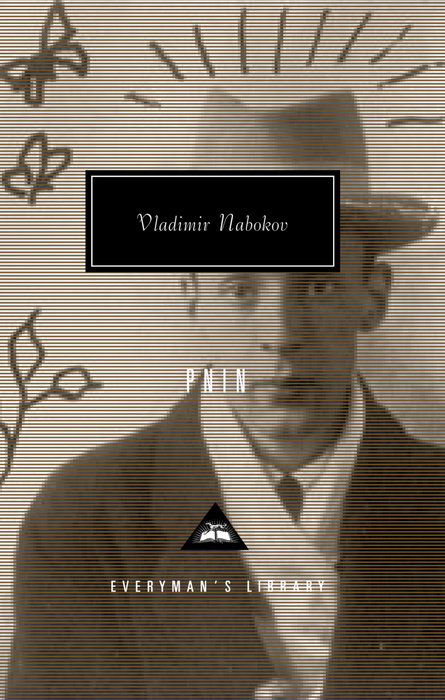
Pnin
Book Description
A disoriented professor navigates the labyrinth of American academia, grappling with loneliness, cultural disconnection, and the bittersweet echoes of his past. Pnin, a charmingly awkward exile, faces a series of comical and poignant mishaps that expose the fragility of human connection. His eccentricities draw laughter, but beneath the surface lies a haunting solitude that resonates deeply. As he strides through the vibrant landscapes of post-war America, will Pnin find a place to belong, or is he destined to be forever an outsider in a world that confounds him?
Quick Book Summary
Vladimir Nabokov's "Pnin" explores the life of Timofey Pnin, a Russian émigré and bumbling professor at an American college in the 1950s. Adrift in an unfamiliar culture and still haunted by the traumas of his past, Pnin's everyday experiences are a series of comic misadventures, from misplaced lectures to misunderstanding the nuances of language and social norms. Yet, beneath his awkwardness and the humor it provides, there is a profound sense of isolation and longing for connection. As Pnin interacts with colleagues, students, and his estranged wife, the novel gently probes themes of exile, memory, and the elusive search for belonging in a changing world. Nabokov's prose delicately balances lighthearted wit with the poignant undertones of Pnin’s loneliness, making this a masterful portrait of an outsider.
Summary of Key Ideas
Table of Contents
Exile and Alienation
Timofey Pnin is introduced as a Russian-born professor of Russian at Waindell College, navigating the complexities of American academic life. His thick accent and peculiar habits set him apart, and he finds communication challenging both in language and cultural customs. Pnin’s missteps—missing his stop on a train, losing his lecture notes, fumbling social interactions—are rendered with Nabokov’s trademark wit. The campus becomes a microcosm of his broader alienation: both endearing and awkward, Pnin embodies the struggles of adapting to an unfamiliar world while retaining one’s sense of self.
Cultural Misunderstandings and Humor
Beyond the comic episodes, the novel reveals the deep sense of displacement that defines Pnin’s existence. Having fled Russia after the Revolution and later France during World War II, he has been uprooted repeatedly, each time leaving cherished connections and familiar contexts behind. The pain of exile manifests in his nostalgia for his homeland and his grief over personal losses, particularly that of his first love, Mira Belochkin, who perished in the Holocaust. Nabokov explores how memory, both cherished and haunting, lingers just beneath the surface of daily life, shaping Pnin’s perceptions and interactions.
Memory and Loss
Pnin’s attempts to forge connections in America are often thwarted by misunderstandings, both linguistic and emotional. While his eccentricities provide comic relief, they also underline the fragility of human connection: he is well-meaning but misunderstood, generous but overlooked. His colleagues often patronize or undermine him, and his interactions with his estranged wife, Liza, are tinged with manipulation and unresolved heartache. These encounters underscore his status as a perennial outsider, even among fellow émigrés.
The Search for Belonging
Despite his setbacks, Pnin demonstrates remarkable resilience and kindness. He finds joy in small triumphs—a successful class, a music performance, a community gathering. The novel offers occasional glimpses of warmth as Pnin touches the lives of his students and friends, revealing the bittersweet nature of his solitude. The interplay between comedy and pathos is central, encouraging readers to recognize both the humor in Pnin’s predicaments and the underlying sorrow of his fractured world.
The Fragility of Human Connection
By the close of the novel, Pnin’s fate remains uncertain as forces beyond his control reshape his academic future. Yet the story resists simple resolution. Pnin’s journey captures the universal search for home, acceptance, and meaning amid exile and change. Nabokov leaves readers with a portrait of quiet dignity and vulnerability, inviting empathy for any outsider negotiating a world that is never entirely their own.
Download This Summary
Get a free PDF of this summary instantly — no email required.





